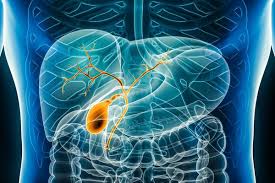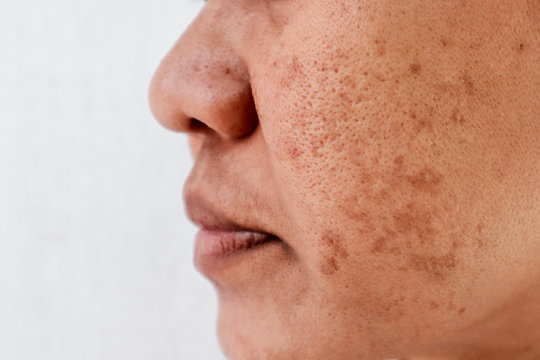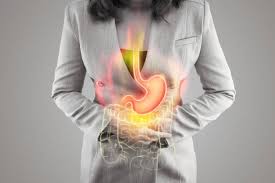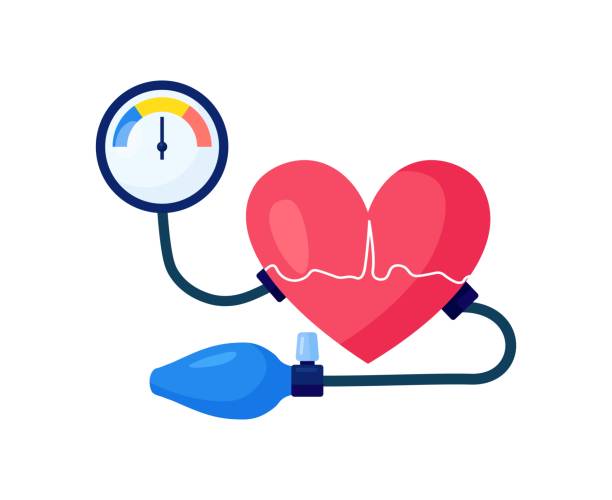What Causes Bile Flow Issues and How Can They Be Treated at home

Bile is a digestive juice which the liver secretes to break down fat and remove waste products from the body. Unhampered bile flow is essential for proper digestion and liver function. When bile flow is interfered with, indigestion pain as well as other severe medical problems can result.
Common Reasons for Bile Flow Malfunctions
The reasons why bile flow malfunctions are numerous.
- Gallstones: Solid, usually cholesterol, masses that may obstruct bile ducts and are the main reason for bile conduit obstruction.
- Inflammation of bile ducts: Cholangitis or primary biliary cholangitis infection inflames the ducts and causes stricture, which will obstruct bile flow.
- Trauma or scarring: Trauma or surgery leads to scarring that will stricture or obstruct bile conduits.
- Liver Disease: Diseases such as hepatitis or cirrhosis can be damaging the efficiency with which the liver secretes and produces bile. In such cases, medications like Udiliv 300 tablet are often recommended to support bile flow and liver function.
- Tumours and Cysts: Obstructing liver, pancreas, or bile duct tumors or cysts.
- Rare Causes: Infections, certain drugs, parasites, and birth defects are also to blame.
Symptoms to Look Out for
When bile is not flowing in a proper manner, you may experience:
- Yellowing of skin or eyes (jaundice)
- Itchy skin
- Abdominal pain (particularly upper right)
- Nausea and vomiting
- Light-colored stools and dark urine
- Loss of appetite and drowsiness
Supporting Bile Flow at Home
Although some issues of bile flow need the attention of a physician, especially jaundice or pain, there are some home habits that can promote healthier bile flow:
1. Diet Modification
Consume Bitter Foods: Bitter vegetables such as dandelion greens, artichokes, and citrus fruits trigger bile production and flow.
- Healthy Fats: Consume healthy sources of fat—avocados, olive oil, nuts—that induce bile release.
- Avoid Processed Foods: Steer clear of foods with excessive amounts of unhealthy fats and sugars as they cause inflammation and rise gallstone risk.
2. Stay Well-Hydrated
Consumption of adequate water keeps the bile in a fluid state and can lower the risk of gallstone formation.
3. Warm Compresses
Application of heat, like a heated towel or heating pad, to the right upper quadrant of the abdomen may be effective in alleviating pain by limiting spasms due to obstruction of bile.
4. Herbal Remedies
Certain herbs like dandelion root or bitter herbal tincture are also traditionally used to aid the working and health of the liver and gallbladder. Attempt this first with a health practitioner, though.
5. Exercise
Light activity leads to overall digestion and assists with healthy weight, both of which lower risks of bile flow obstruction.
How Bile Works in the Digestive System
Bile is more than just a fat emulsifier. It plays a critical role in:
- Absorbing Fat: Soluble Vitamins: Bile helps absorb vitamins A, D, E, and K, which are crucial for immunity, skin health, and blood clotting.
- Eliminating Waste: It removes excess cholesterol, drugs, and other waste products through faeces.
- Maintaining Gut Health: Bile has antimicrobial properties, helping balance the gut microbiome.
When bile flow is impaired, these vital functions are compromised, potentially leading to nutrient deficiencies, digestive distress, or bacterial overgrowth in the small intestine.
Risk Factors That Affect Bile Health
There are several factors that increase the chances of bile flow obstruction or malfunction:
- High-cholesterol diets: This increases gallstone risk.
- Sedentary Lifestyle: Physical inactivity can impair digestion and slow bile release.
- Crash Dieting or Rapid Weight Loss: These can contribute to gallstone formation.
- Hormonal Changes: Women, especially those who are pregnant or on birth control pills, are at a higher risk due to hormonal shifts affecting bile composition.
- Ageing: As we age, liver function and bile production can naturally slow down.
Medications for Bile Flow Obstruction
At times, the doctor also prescribes medications such as udiliv 300 with ursodeoxycholic acid or movebile 300 mg. These dissolve gallstones formed by cholesterol and also improve bile flow, particularly in primary biliary cirrhosis or other bile acid liver diseases. These need to be taken under the supervision of a professional doctor, as they are prescription drugs.
Surgical and Clinical Interventions
In more serious cases where medications or lifestyle adjustments don’t resolve bile flow obstruction, clinical or surgical interventions may be required. These include:
- Endoscopic Retrograde Cholangiopancreatography (ERCP): A procedure to diagnose and remove blockages.
- Cholecystectomy: Removal of the gallbladder when gallstones are recurrent.
- Stent Placement: To open narrowed bile ducts.
- Liver Transplant: In rare, severe cases involving end-stage liver disease.
These are determined based on severity, medical history, and the root cause of bile flow issues.
When to Seek Medical Attention
Consult your doctor if you have:
- Severe pain in the abdomen
- Jaundice lasting for a long time
- Symptoms of infection (chills, fever)
- Severe worsening of symptoms
- Prompt action is important to avoid such complications as infection, liver injury, and malnutrition.
Final Thoughts on Maintaining Bile Flow
Keeping bile flowing freely is essential for digestive comfort, liver health, and overall wellness. A balanced lifestyle with proper hydration, a clean diet, regular movement, and periodic medical checkups can go a long way in preventing bile-related complications.
While self-care is helpful, persistent symptoms or severe discomfort always warrant professional medical evaluation. Early detection and timely management can make a significant difference in outcomes.
Disclaimer:
This article is for informational purposes only and shouldn't be considered professional medical advice. Always consult your physician prior to initiating any new therapy, particularly medication, or with symptoms of obstructive bile flow.
Note: IndiBlogHub features both user-submitted and editorial content. We do not verify third-party contributions. Read our Disclaimer and Privacy Policyfor details.







